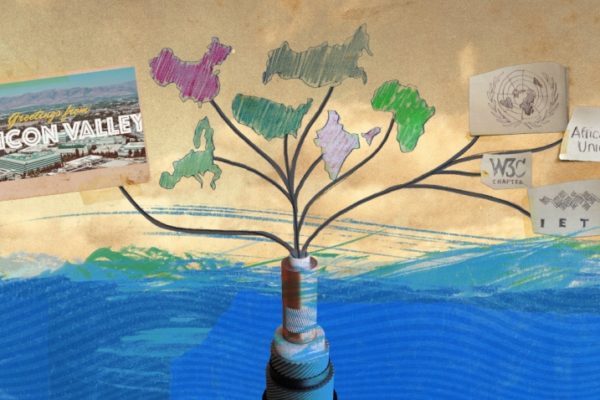Open internet under threat, according to new report from the Tony Blair Institute
A new report published last week by the Tony Blair Institute for Global Change says that the internet as we know it today is under threat. Titled ‘The Open Internet on the Brink: A Model to Save Its Future’, the report says that global internet systems and structures are on the brink of collapse, and that big tech needs to set out clearer and more robust international policies to protect and promote a more responsible open internet around the world.

From tensions over semiconductor supply chains, to a creaking global governance model, the wide-ranging paper says that world leaders are increasingly opting for nationalist approaches to online issues, while companies are making irreversible changes to the internet’s hardware and infrastructure. It calls for a bold new approach to address the pressing and growing threats to the internet, and the global public good it can bring. Recommendations include:
- D10 countries (G7 + India, South Korea, and Australia) establish a new Digital Infrastructure and Defence Alliance.
- The UN creates a “Strategic Geopolitical Status” designationapplicable to large technology firms, and creates a new, self-regulatory, industry-wide body with Permanent Observer status at the UN.
- The UN, D10 and Strategic Geopolitical Status firms establish a new Multi-Stakeholder Panel on Internet Policy to act as an ecosystem oversight body.
- All countries create new foreign-policy strategies that integrate digital, data and technology into diplomacy.
In his foreword to the report, Tony Blair, TBI Executive Chairman, says: “The technological revolution has been a global phenomenon unlike any other. Now, in response to the disruptive power of the open internet, new types of control are emerging. The idea of recreating digital borders to replicate national ones has been picked up by governments across the world. At first it seems persuasive but on closer examination doesn’t survive contact with technical or economic reality and is often an internet-era re-articulation of protectionism.”
“This report sets out a new model of ‘internet internationalism’, which seeks to close the digital divide, bringing the 3.7 billion people without internet access online through global cooperation, and to build new alliances capable of preserving the economic and social benefits of the internet, while addressing the real need states have for solutions to online safety, cybersecurity and semiconductor supply chains.”

Max Beverton-Palmer, Director of TBI’s Internet Policy Unit, adds: “We cannot continue to kick the can of global internet governance down the road. The longer we take to agree an internationalist approach to decisions and actions around internet infrastructure and systems, the greater the chance that irreversible damage will be done to the internet as we know it, and as hundreds of millions of the world’s poorest people need it to be.”
“An integrated strategy, which takes technology policy seriously as a foreign-policy priority, can provide a guiding framework that empowers different teams within governments to look ahead and identify capabilities that are missing or will be in demand. It is vital, to enable like-minded allies to cooperate to stabilise the internet ecosystem.”
The full report can be accessed here.









